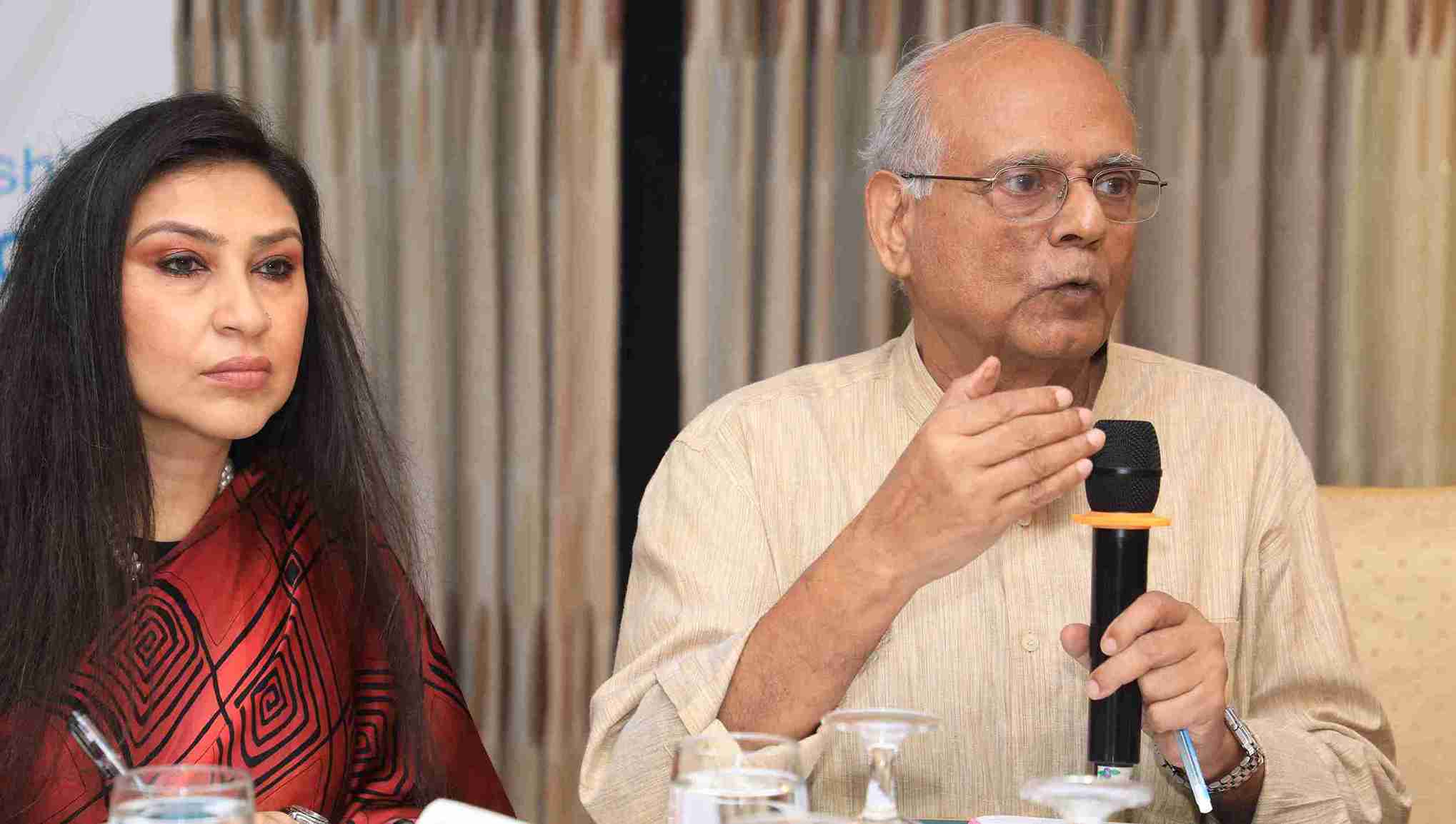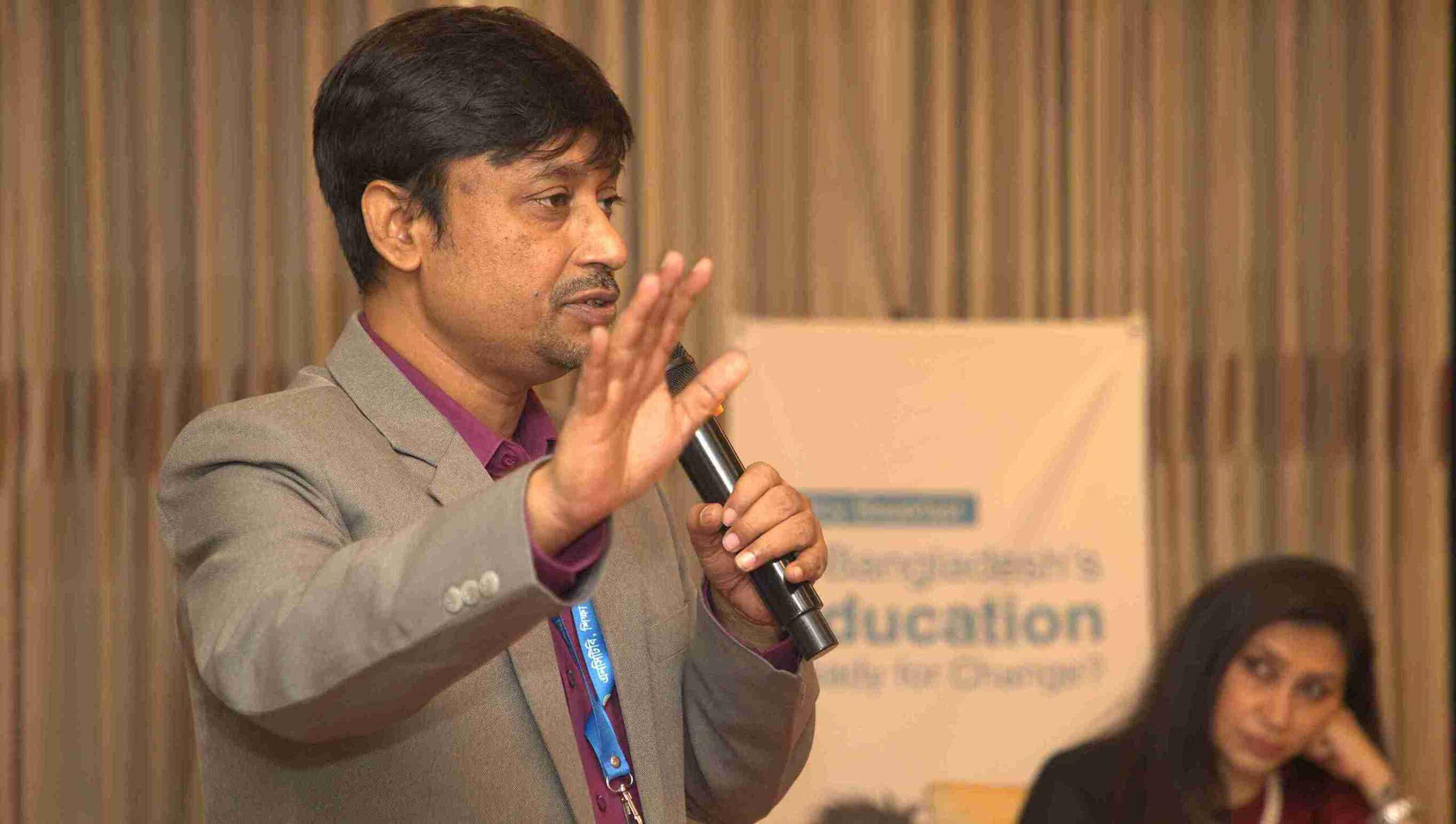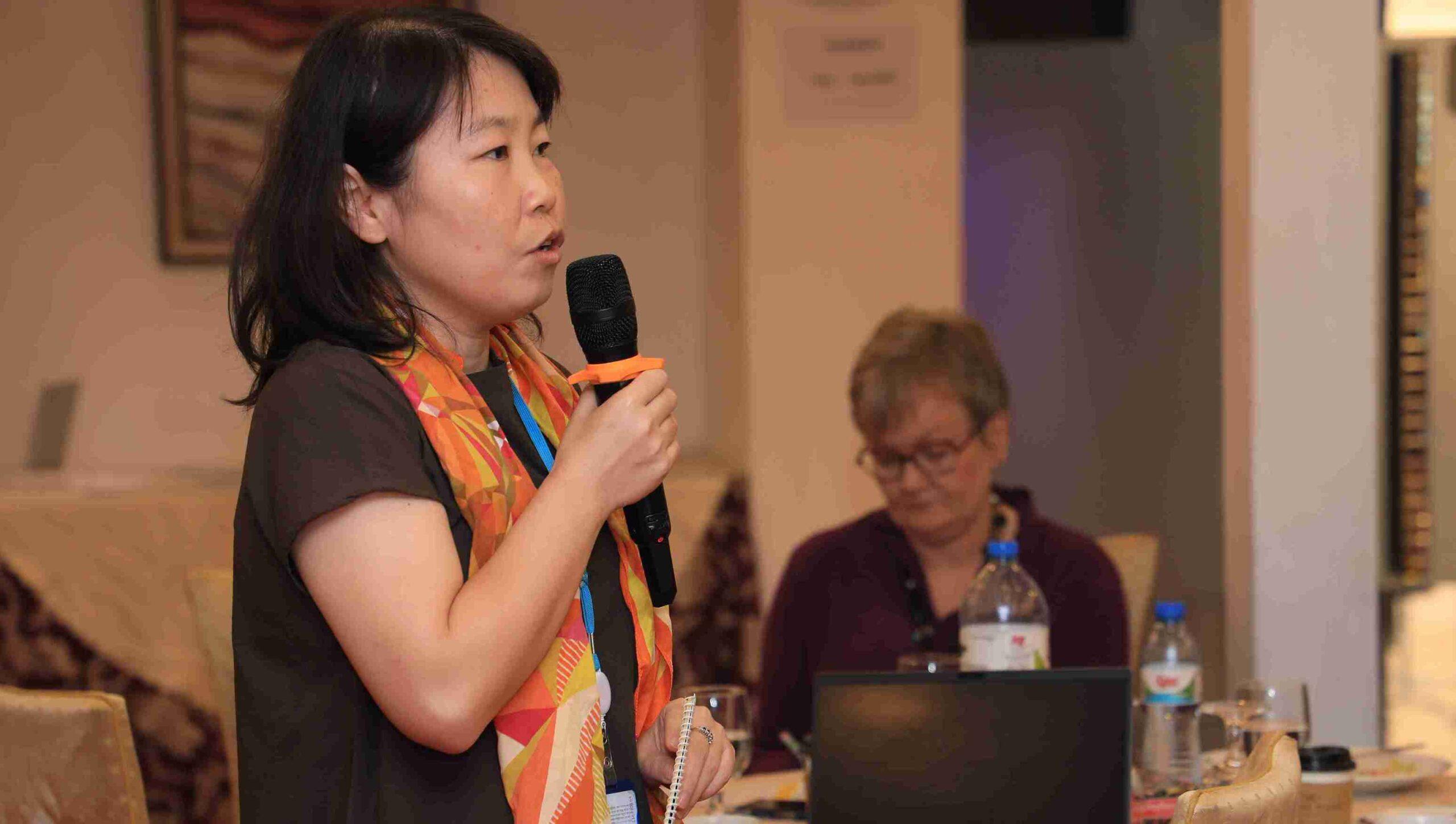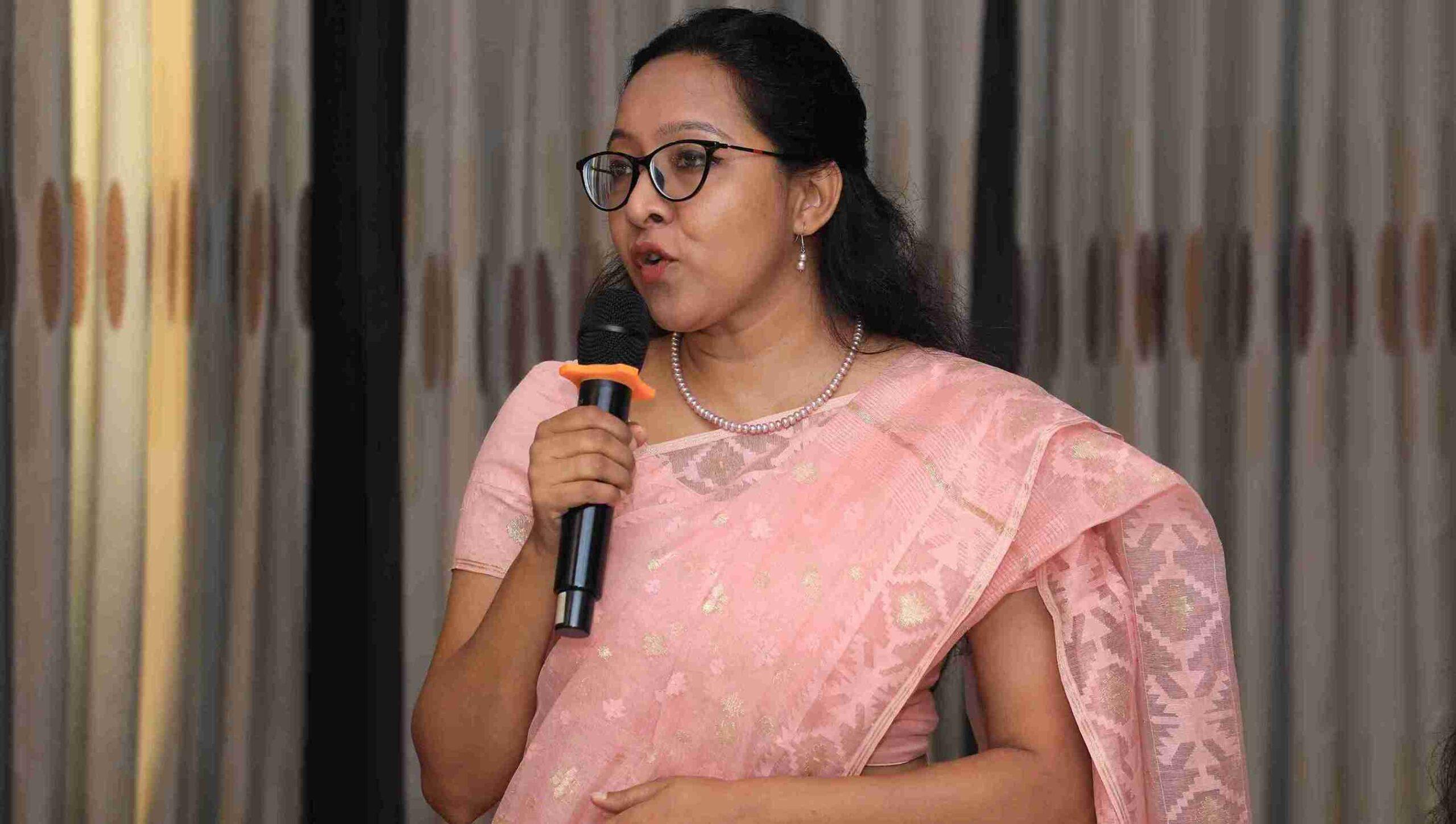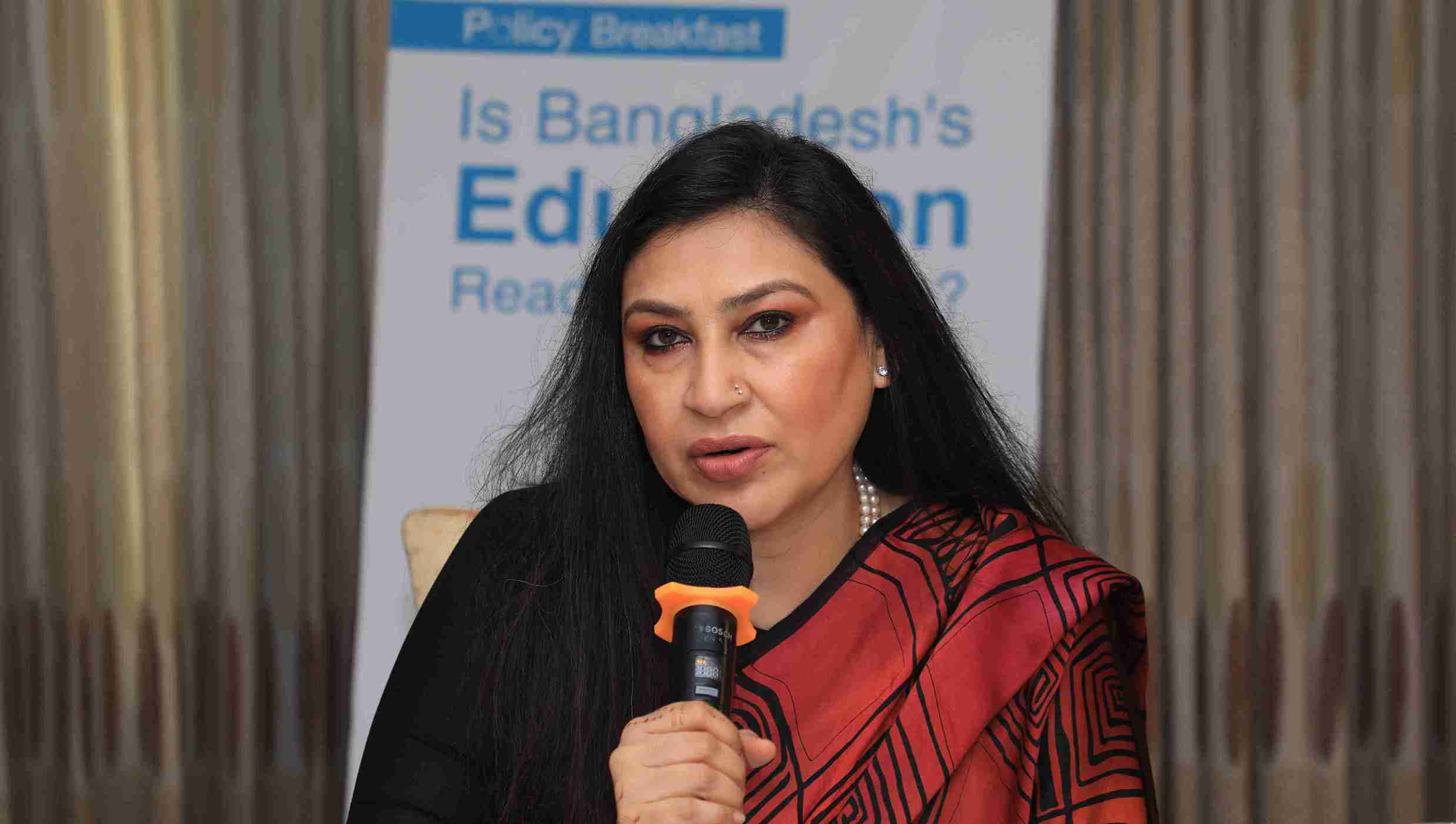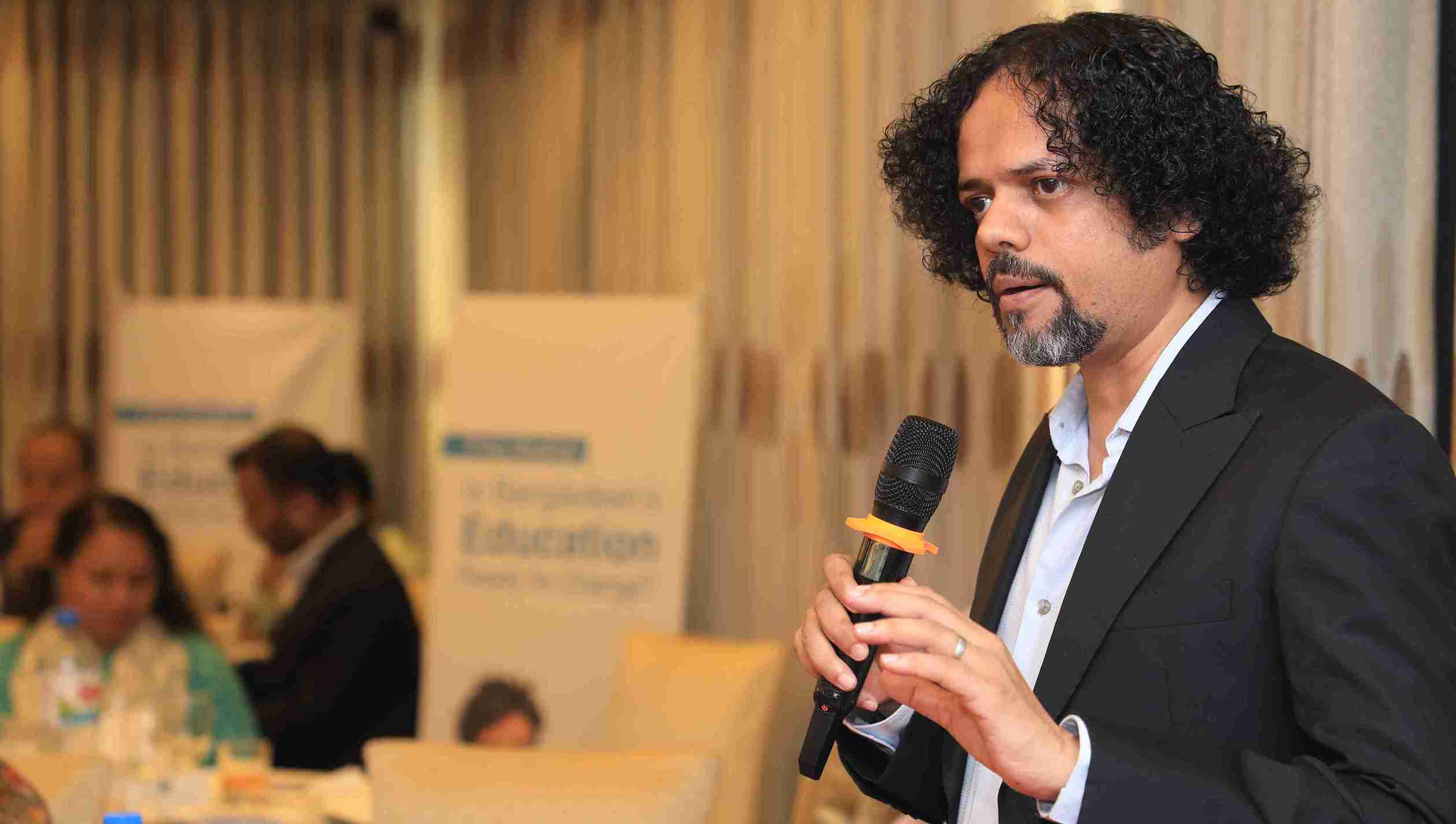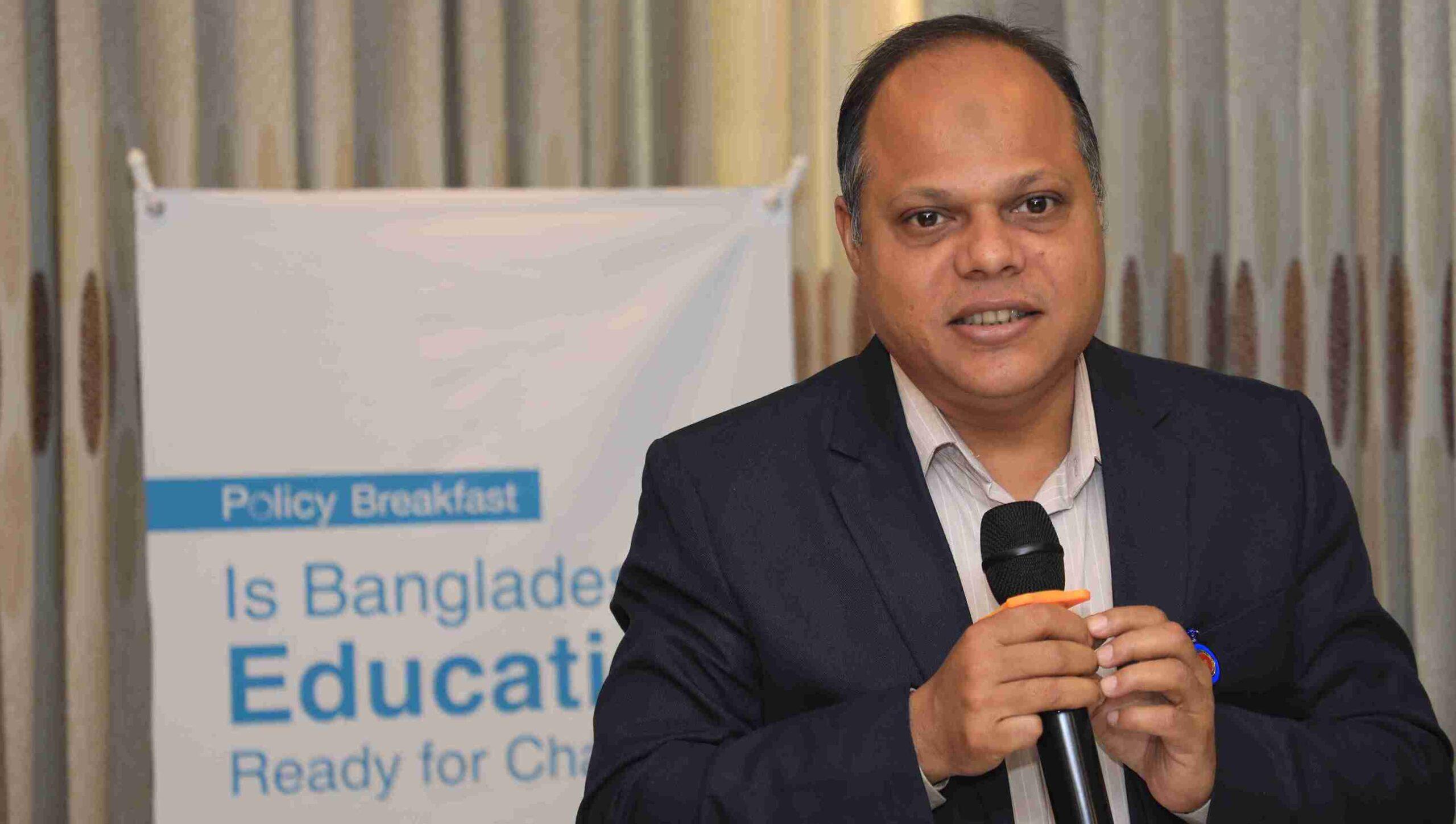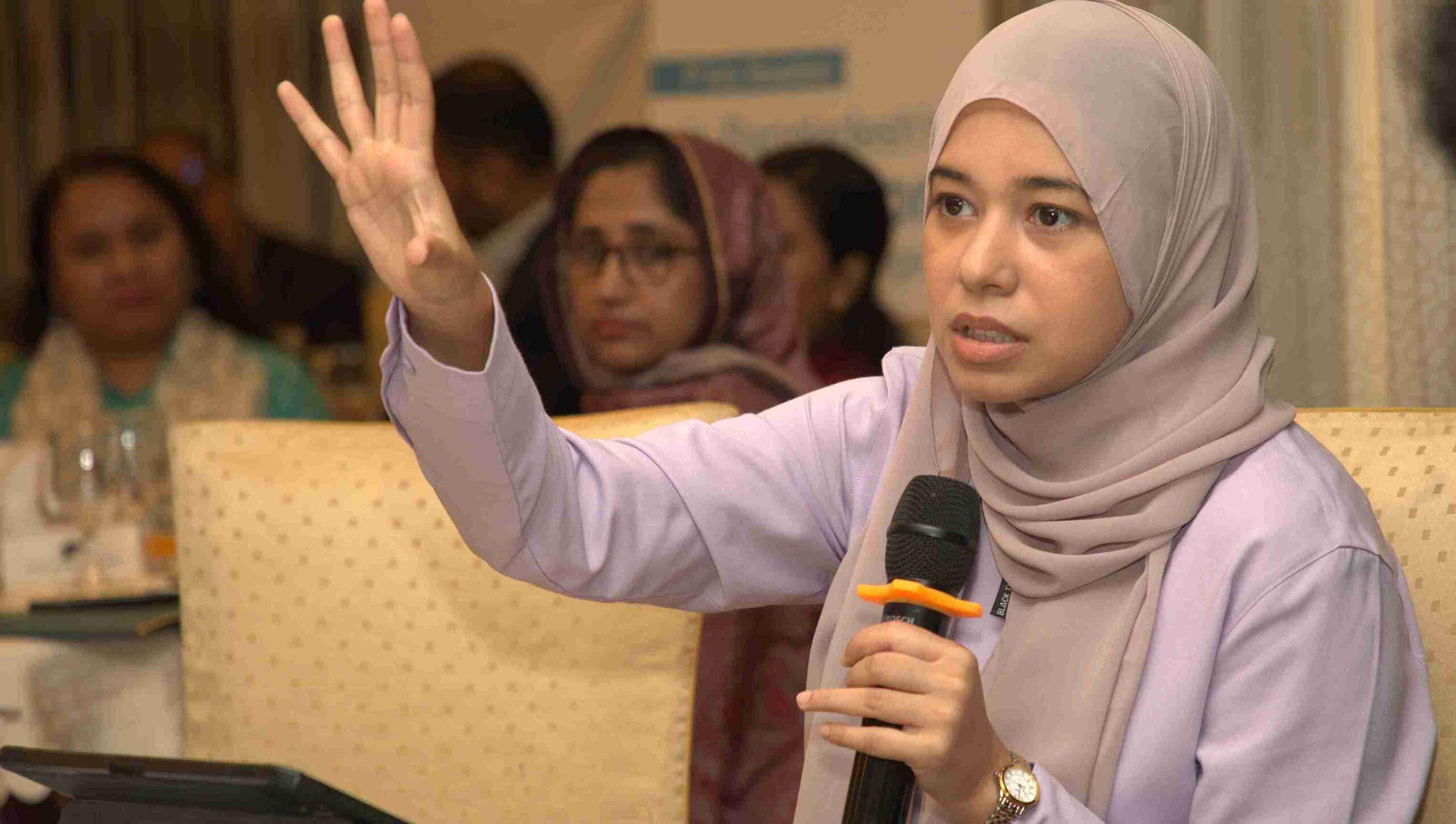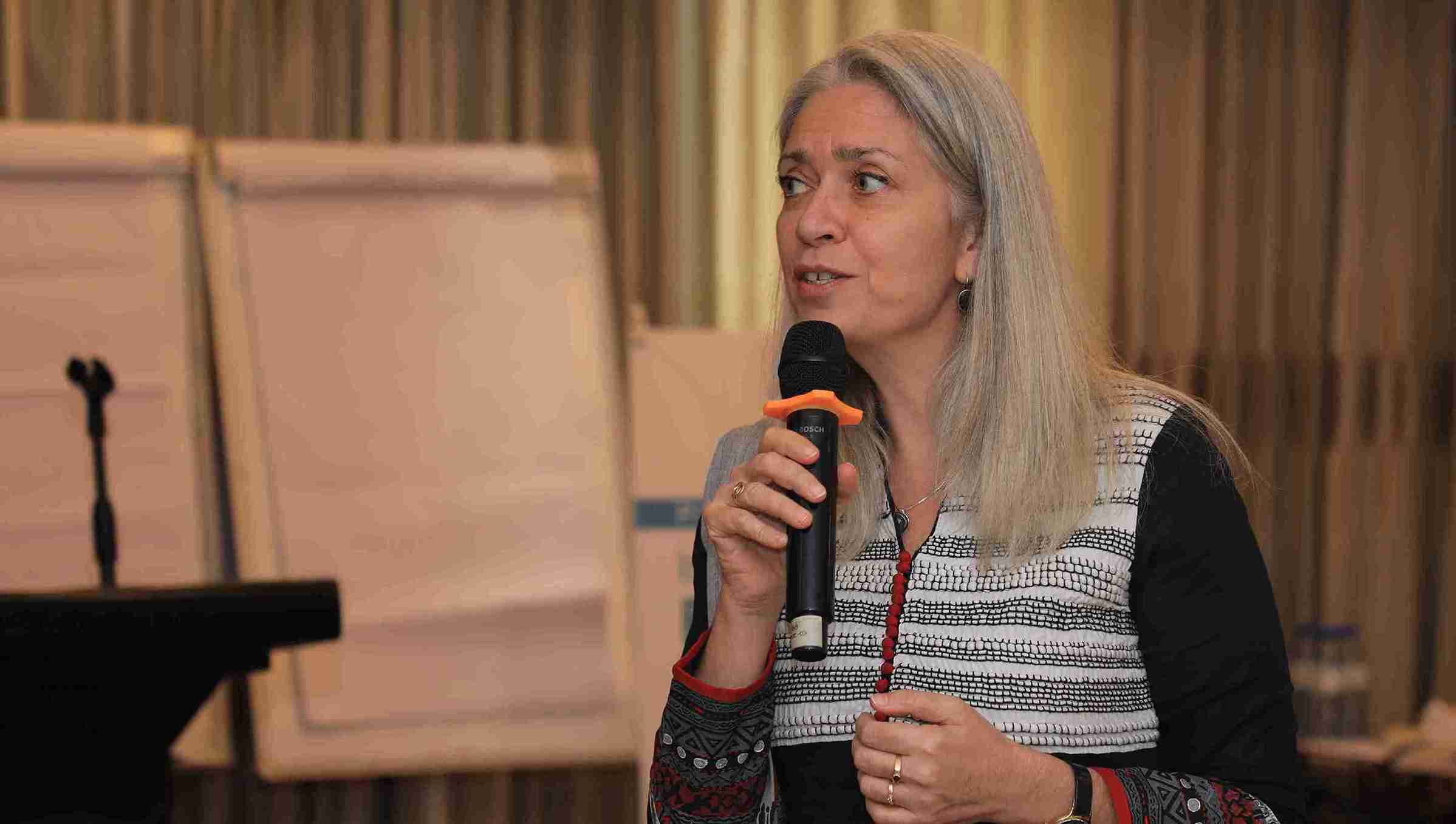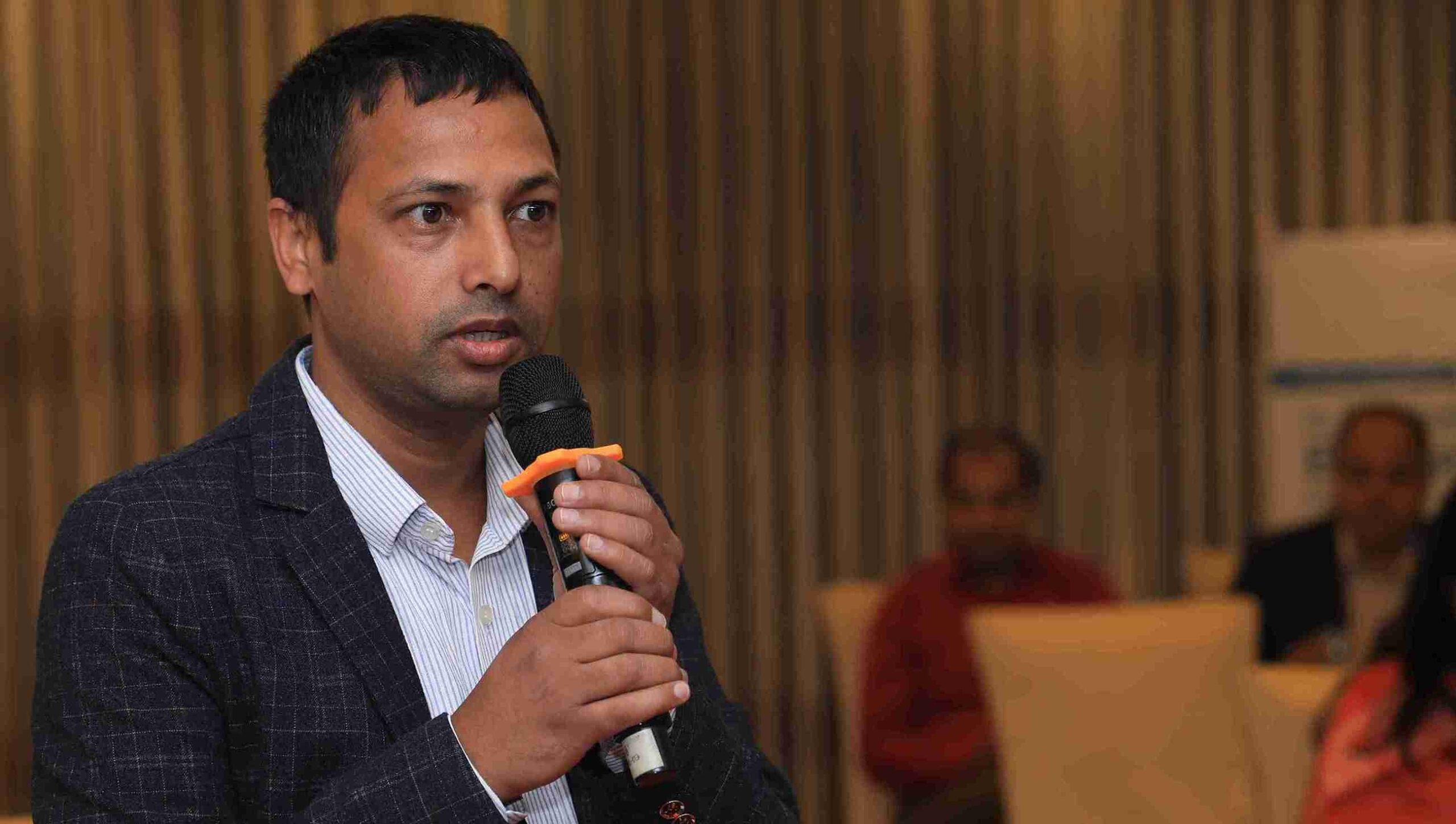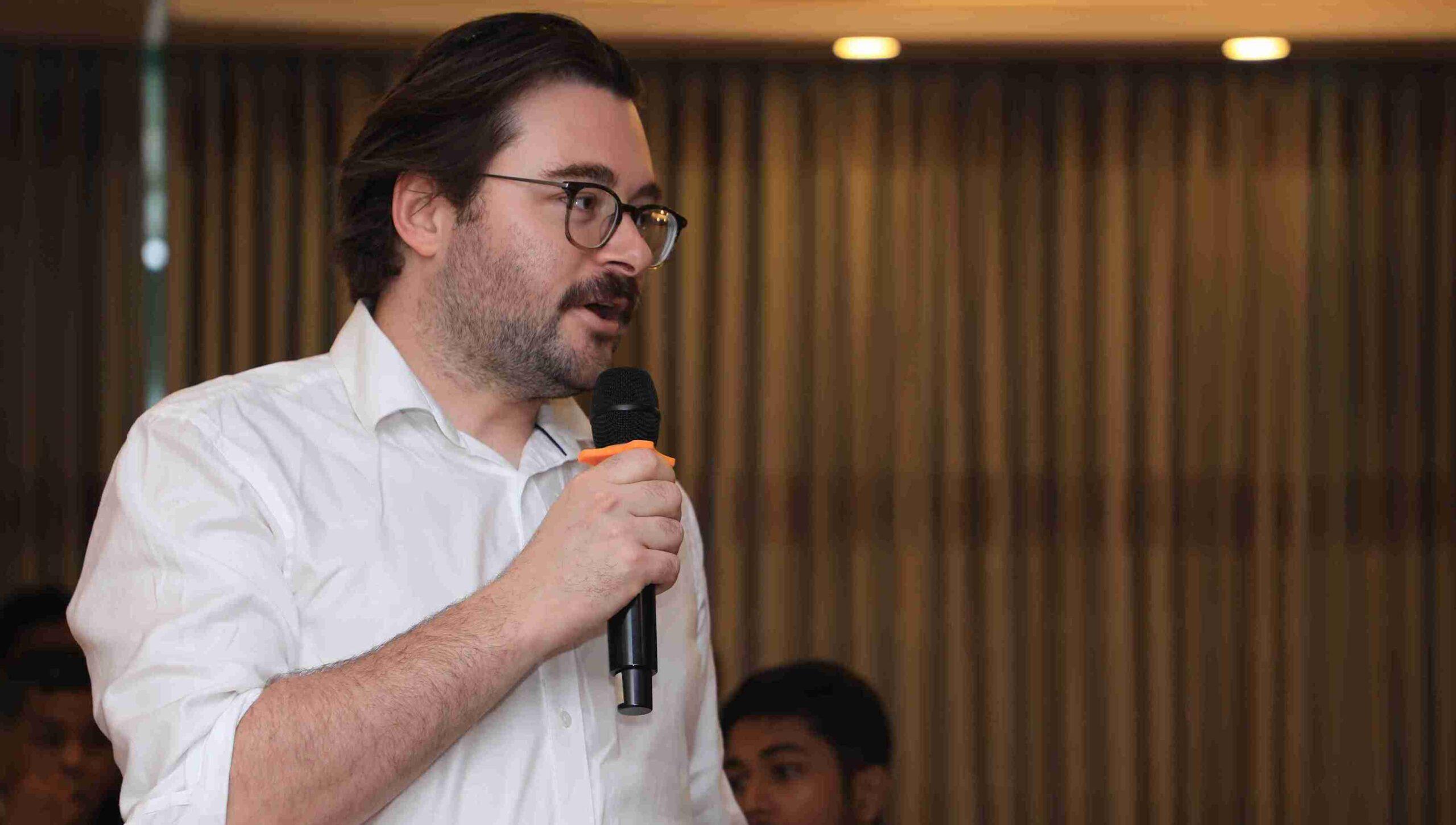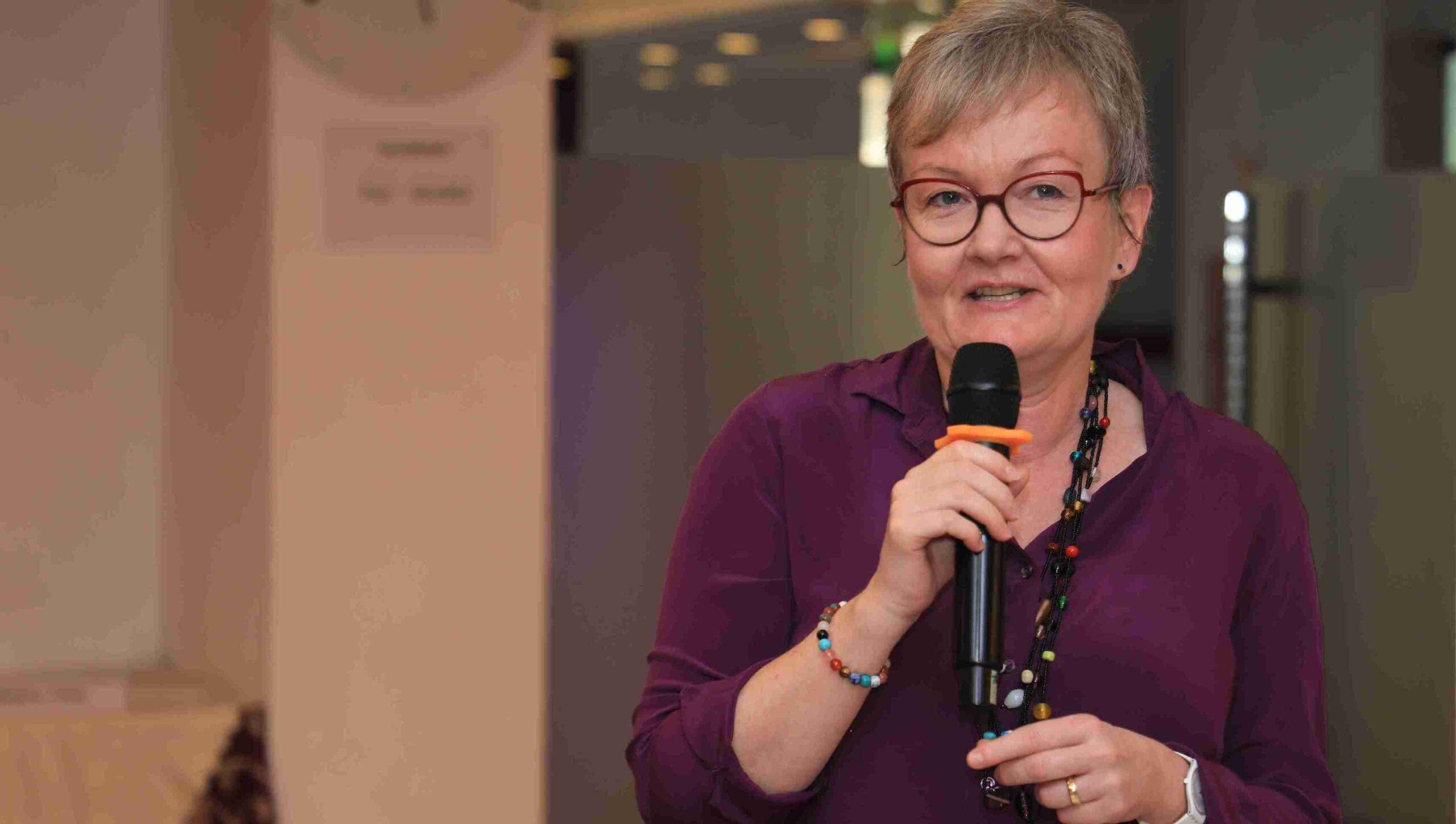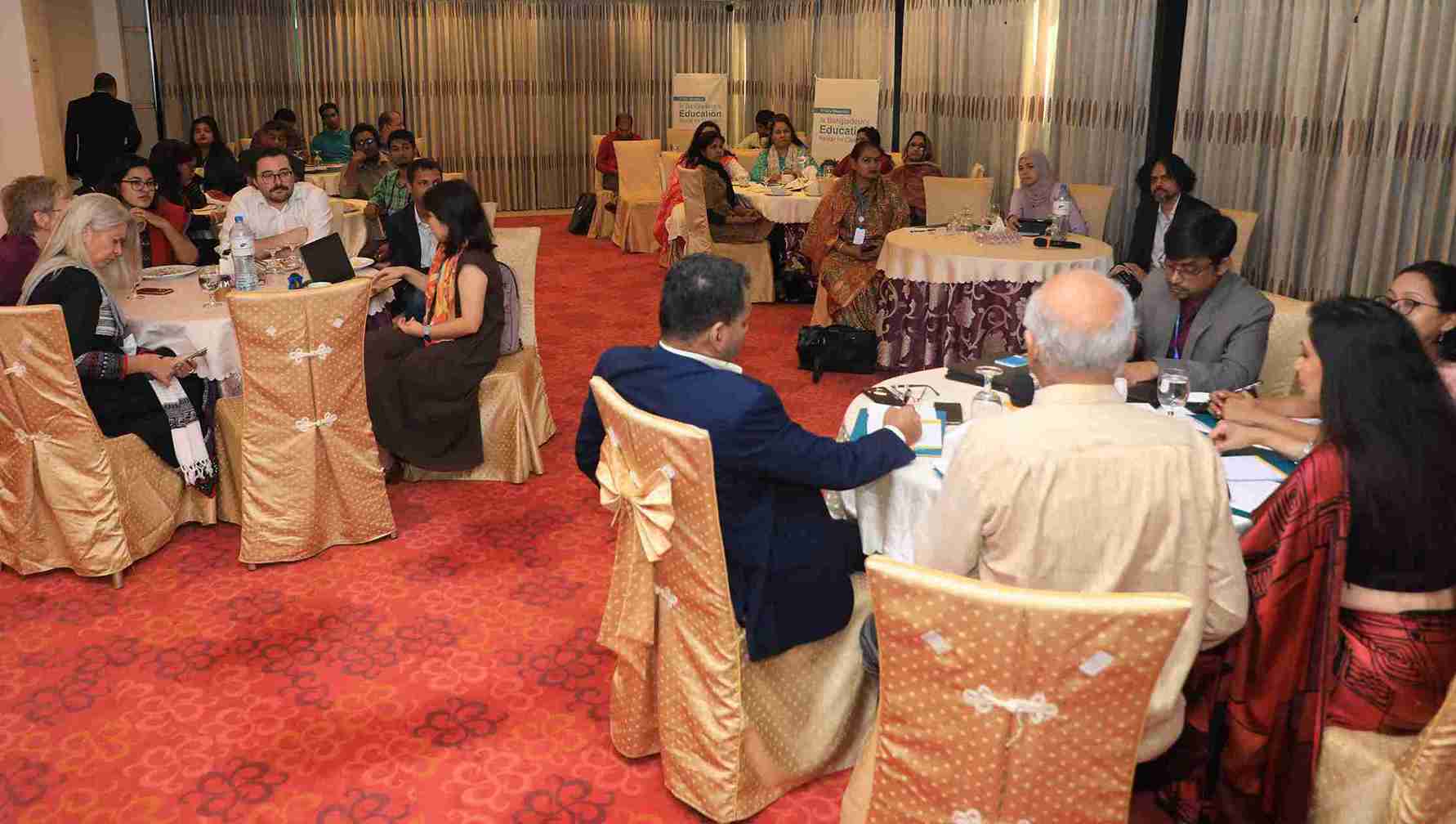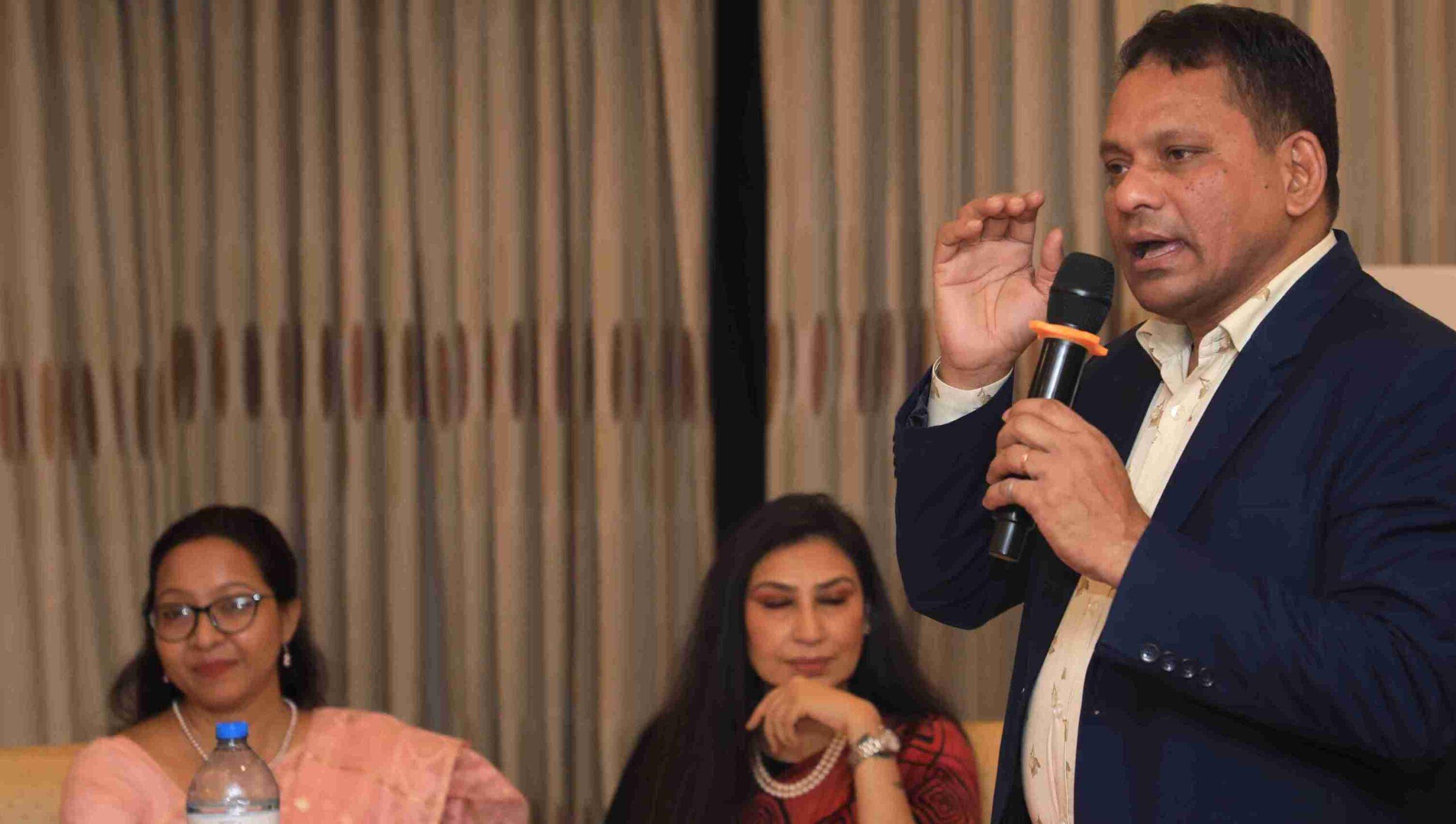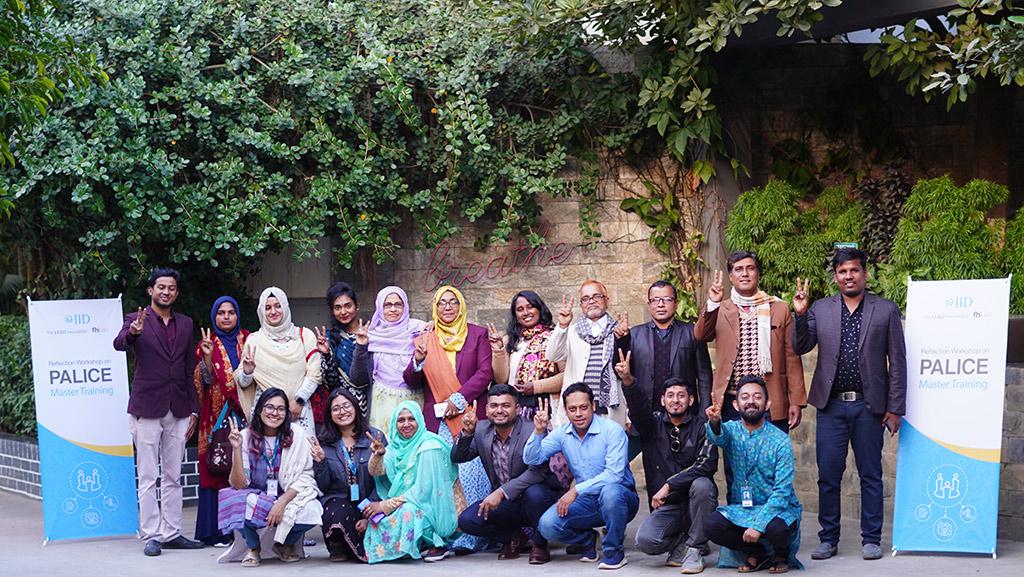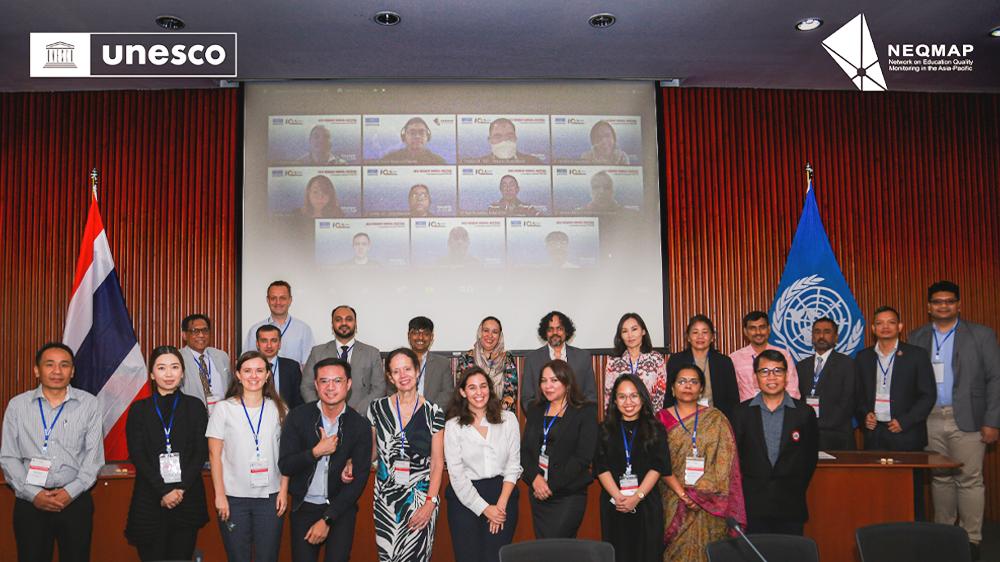The education system in Bangladesh introduced a new curriculum in 2023, with significant changes in the content of textbooks, teaching methods, and assessment methods for students. However, challenges persist in the successful implementation of the initiative. To discuss the challenges and way forward for the implementation of the new curriculum and to involve relevant stakeholders in an open dialogue, IID, in partnership with the Global Partnership for Education (GPE), organized a Policy Breakfast on ‘Is Bangladesh’s Education Ready for Change?’. It was held on November 23, 2023, from 9:00 a.m. to 11:00 a.m. at Hotel Bengal Blueberry, Gulshan-2, Dhaka. The discussion at the event focused on evaluating the preparedness of Bangladesh’s education system to embrace the recent curriculum change, emphasizing the current state and challenges associated with the implementation of the new curriculum.
Key topics of conversation revolved around the importance of parental involvement, teacher training, and the integration of experiential learning methods. These critical aspects took centre stage as participants engaged in the dialogue. Stakeholders engaged in discussions, providing valuable insights and recommendations for the successful implementation of the new curriculum.
Experts stressed the importance of encouraging parental involvement through regular training sessions, addressing the lack of awareness among parents. They proposed additional budgetary resources to support infrastructure development and necessary support systems, ensuring the education system’s preparedness.
Customized teacher training programmes were recommended to alleviate the anxiety among teachers adapting to the new curriculum. The shift from lecture-based to experiential learning methodologies was highlighted, emphasizing a more interactive and engaging learning environment with teachers positioned as mentors.
Coordination among policymaking, practical implementation, and research emerged as a crucial factor for evidence-based decision-making and sustainable reforms. Experts underscored the need for a meticulous evaluation of curriculum readiness and the integration of transferable skills such as communication, accountability, and morality.
Government officials acknowledged the positive aspects of the new curriculum, including its well-structured design and instructional support for teachers. However, challenges such as a lack of knowledge among teachers and parental resistance rooted in traditional educational experiences were recognized.
Recommendations from the event emphasized the development of a need-based teacher training system, alignment with skills for the 4th industrial revolution, community dialogues for effective communication, coordination among stakeholders, a robust feedback mechanism for parents, and strategic resource allocation.
Moderated by Syeed Ahamed, the CEO of IID, the event featured active participation from distinguished guests, including Chairman of National Curriculum and Textbook Board (NCTB) Professor Mohammad Farhadul Islam; Manzoor Ahmed, Professor, BRAC University; Md. Mahmudul Amin, Associate Professor, NCTB; Mahjabeen Khaled, Co-chair, Parliamentary Caucus on Social Justice; Dr. Sumera Ahsan, Associate Professor, Institute of Education and Research (IER), University of Dhaka; Azwa Nayeem, Founder and Chairperson, Alokito Hridoy Foundation; Huhua Fan, Education Programme Specialist, UNESCO; Miriam Lindwer, Director and Senior Consultant, MDF Asia Myanmar; Alexander Tonwe, Education Consultant and Research Fellow, ACER UK; Marianne Olesen, Senior Programme Coordinator, OXFAM Denmark; Janak Raj Pant, Regional Education Advisor- Asia Pacific, EOL Programme, Oxfam IBIS and Mirza Mohammad Didarul Anam, Education Specialist, a2i.

